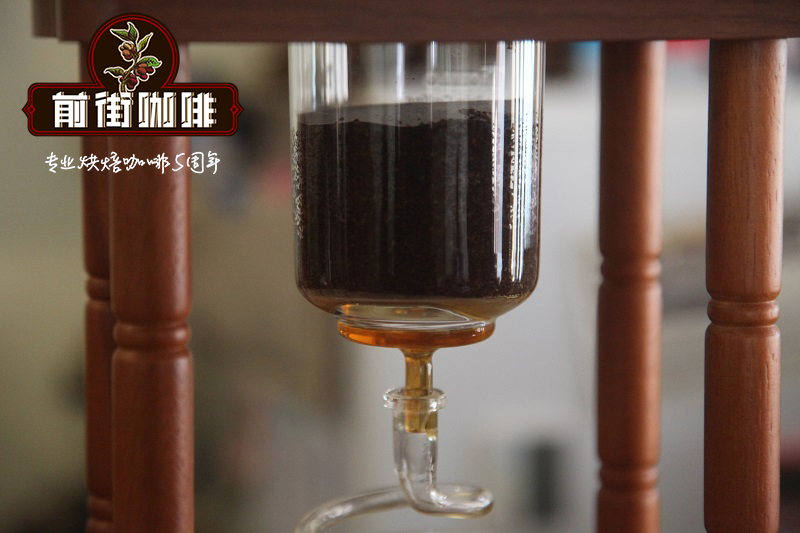Is it okay to drink coffee once in a while during pregnancy? Pregnant women drink coffee? Be careful of these problems.

Professional coffee knowledge exchange more coffee bean information please follow the coffee workshop (Wechat official account cafe_style)
Coffee is the most popular drink in the world, and its trade volume is second only to crude oil. In recent years, coffee has been proved to have health effects, and it has been found that it has a lot of phytochemicals, which can be identified more than 300 kinds, such as caffeine, chlorogenic acid and other substances that are beneficial to the human body.
Therefore, past studies have found that coffee drinkers have a lower risk of diabetes, hyperlipidemia and cardiovascular disease, and can even reduce the risk of depression. However, for the special group of pregnant women, is it really good to drink coffee? Can pregnant women drink coffee? And these days, it was revealed that pregnant women bought coffee in the commune, and young people in line scolded that coffee would lead to deformities. Will this really happen? Is it true that pregnant women can't drink coffee?
Increase the probability of miscarriage
It is probably no longer news that drinking coffee increases the risk of miscarriage. As early as 1993, a study in the Journal of the American Medical Association (JAMA) suggested that caffeine intake was associated with miscarriage. In this study, the highest caffeine intake (caffeine greater than 321mg per day) was 2.62 times more likely to win (odd ratio) than those with the lowest (less than 48mg per day). Another study found that heavy caffeine drinkers (more than 400 milligrams a day) increased the risk of sudden fetal death (linked).
The 2015 Integrated Analysis study (meta-analysis), which consolidated the results of 26 studies, found that consuming 150mg of caffeine a day increased the risk of miscarriage by 19 per cent, while drinking more than two cups of coffee a day increased the risk by 8 per cent. A more recent study, published this year by a collaboration between Harvard University and the National University of Singapore, found that every 100 mg of caffeine intake increased the risk of miscarriage by 7%. These data show that mothers should be very careful when consuming caffeinated foods so as not to cause miscarriage.
Is it true that pregnant women with ▲ cannot drink coffee?
Affect the fetal brain
Because caffeine binds to brain receptors and affects brain physiology, and caffeine can pass through the placenta from the mother to the fetus, developing fetuses in the brain are bound to be affected. However, it is difficult to study the health of pregnant women and fetuses. After all, no mother is willing to take herself as an experimental subject, so most of the studies on this kind of research are epidemiological observations and animal behavior experiments.
Past studies have indeed found that pregnant mothers eat caffeine and their offspring are more likely to exhibit anxiety-like-like behavior (link). In addition, some scholars believe that mothers' exposure to a large amount of caffeine during the third trimester of pregnancy may be related to a child's low IQ during childhood development.
Affect fetal metabolism and three high probability
Many studies have pointed out that caffeine may be one of the inducers of fetal growth retardation in the womb, and Harvard University study has shown that caffeine intake by mothers is associated with low birth weight. In addition, a study published in the Journal of the Public Library of Science (PLoS ONE) found that caffeine intake during pregnancy increases the risk of metabolism-related diseases in their offspring as they grow up.
This may be due to the fact that the caffeine consumed by the mother enters the fetus's brain, affecting the regulation of stress hormones (corticosterone), making it difficult for the fetus to control blood sugar after birth and growth. In addition, some animal studies have found that caffeine affects the regulation of fetal blood pressure and increases the risk of hypertension in offspring, so it is often suggested in the literature that mothers should avoid caffeine intake so as not to cause fetal injury.
▲ caffeine can pass through the placenta from the mother to the fetus, and the developing fetus is bound to be affected.
Drinking coffee will not cause fetal deformities.
Drinking coffee can cause fetal deformities, which is the abuse and doubt of young people in the queue in the news, but there is no definite evidence of a link between the two. Some studies have suggested that excessive caffeine intake during pregnancy can lead to neural tube defects and further spina bifida (connections), but other studies suggest that there is no significant correlation between the two. In fact, although caffeine can cause fetal health problems, there seems to be no correlation between caffeine and fetal malformations.
Although caffeine or coffee does not cause fetal deformities, caffeine does cause problems such as growth retardation and metabolic abnormalities. Some literature or official units advise pregnant mothers to touch less than 200 milligrams of caffeine a day, equivalent to two cups of American coffee.
However, some scholars suggest that caffeine should be avoided as far as possible. Therefore, in my personal opinion, the fetus is healthy only once, so in this nine months of pregnancy, try to avoid caffeine intake, avoid any adverse effects of the fetus! So for the mother in the original news, for the sake of the baby's health, you'd better drink less.
Important Notice :
前街咖啡 FrontStreet Coffee has moved to new addredd:
FrontStreet Coffee Address: 315,Donghua East Road,GuangZhou
Tel:020 38364473
- Prev

What if a pregnant woman drinks coffee? can a pregnant woman drink coffee? what happens when a pregnant woman drinks coffee?
Professional coffee knowledge exchange more coffee bean information please follow the coffee workshop (Wechat official account cafe_style) can pregnant women drink coffee and tea? Fragrant coffee and fresh tea have added a lot of interest to modern people's life, and have become a part of life and a good way to relieve stress. However, mothers-to-be who want to get pregnant or who are already pregnant should pay attention! Before getting pregnant
- Next

Can a pregnant woman have a cup of coffee? No coffee during pregnancy? To listen to the doctor's doubts.
Professional coffee knowledge exchange more coffee bean information please follow the coffee workshop (Wechat official account cafe_style) can pregnant women drink coffee? Doctor, I didn't know I was pregnant. I drink two cups of coffee every day. I want to take the baby off. Doctor, since I have been pregnant for more than six months, my greatest wish is to drink coffee. Is it true that I can't drink even a sip? Doctor, usually I like best.
Related
- How did the Salvadoran coffee industry develop in Central America?
- What exactly does the golden cup extraction of coffee mean?
- The Origin of Coffee flower
- [2023 Starbucks World Earth Day] there are more meaningful things besides free Starbucks coffee!
- What kind of coffee is there in Spain? 9 Flavors of Spanish Coffee
- Aromatic African coffee| Kenya's coffee culture and historical production area
- Liberica Coffee Bean knowledge: the characteristics of Liberian Coffee beans of the three original species of Coffee beans
- The origin and formula of Spanish latte introduces the taste characteristics of Bombon coffee in Valencia, Spain.
- How to adjust the solution of over-extracted coffee
- What is the tasting period of coffee beans? What is the period of coffee and beans? How should coffee wake up and raise beans?

